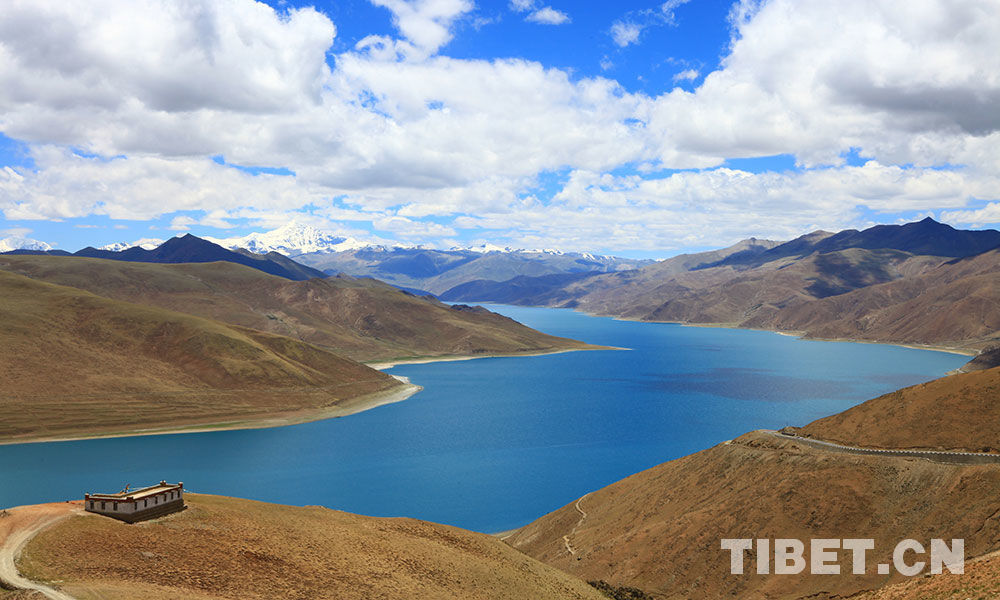Can India quell rivalry mentality over China?
Despite a long-standing history of interaction between China and India and positive joint statements issued by the two leaderships, we need an accurate understanding of the development of bilateral relations as New Delhi sees Beijing as a competitor and strategic rivalry will be the key element in the next stage of their ties.
With this mentality of India, China and India have made no breakthrough in solving their prolonged border dispute, China's Belt and Road initiative has been met with hesitation from India, and New Delhi has worked closely with Washington and Tokyo with regard to the South China Sea issue.
It is also against this backdrop that India blamed its stalled attempt to join the Nuclear Suppliers Group on China and campaigned to boycott Chinese goods.
That New Delhi views Beijing as a regional strategic rival will greatly affect the development of bilateral relations. To begin with, maintaining a lukewarm relationship will become the norm. In the past, the leaders of the two nations expected each other to view the relationship of competition and cooperation in a reasonable way.
Indian Prime Minister Narendra Modi tweeted in 2014, "If I have to describe the potential of India-China ties, I will say - INCH (India and China) towards MILES (Millennium of Exceptional Synergy)!"
However, as India has gradually started to see China as a strategic rival, ties have failed to develop as expected. Even economic ties, which academics from both countries used to take delight in talking about, have been affected.
In addition, a slew of historical issues will continue to blight bilateral relations. We have no intention of denying the achievements made by both parties. The peace and stability in the border regions between the two countries in recent years is a pertinent example.
But now that New Delhi sees Beijing as an opponent, issues such as India's stance on the one China policy could impact bilateral ties. Once the Indian government takes a backward stance, it will not only be economic cooperation projects that will be affected, but also a series of issues concerning China's core interests. India may continue to make use of the Dalai Lama with regard to Tibet and could delay negotiations on the perennial border rift.
Furthermore, India's injurious maritime interaction with the US and Japan cannot be ignored. Both Washington and Tokyo view Beijing's rise as a threat. The Indian government has changed its previously ambiguous attitude with regard to the South China Sea and joined hands with the US and Japan to impose pressure on China.
A closer partnership may also face setbacks. When Modi assumed office in 2014, India and China vowed to build a closer partnership, but in 2016, even cooperation in traditional areas such as the economy and trade suffered due to India's adversarial stance.
In the near future, the two countries will continue to cooperate but New Delhi's attitude will limit progress.
The "India factor" has become increasingly salient in China's cooperation with other South Asian countries. For a country that sees itself playing a dominant role in South Asia, China's interaction with the countries at India's doorstep is like a fishbone stuck in the throat.
New Delhi views Beijing's growing cooperation with other South Asian nations as containment of itself and will try its best to disrupt.
Your Comment
Name E-mailRelated News
-
;
-
-

-
U.S. to slash aid to Dalai Lama
The United States would abolish funds to the Tibet Fund and Ngawang Choephel Fellowship programs from its 2018 annual budget, according to Global Times.
-
-
-

-
China warns US legislators on meetings with Dalai
China asked a US congressional delegation to discreetly deal with Tibet-related issues and avoid contact with the Dalai Lama, after the delegation reportedly visited the Dalai Lama in India on Tuesday.
-
Based in Lhasa, Tibet Vista is a Tibet travel agency that specialized in Tibet permit, and Tibet tours for both private and group travelers at a local price!
•4 Days Lhasa City Group Tour from USD 460 •8 Days Everest Base Camp Group Tour from USD 850 •15 Days Mt.Kailash Group Tour from USD 1780 •2016 Tibet Train Tours from Beijing, Shanghai, Chengdu, Xining,etc










